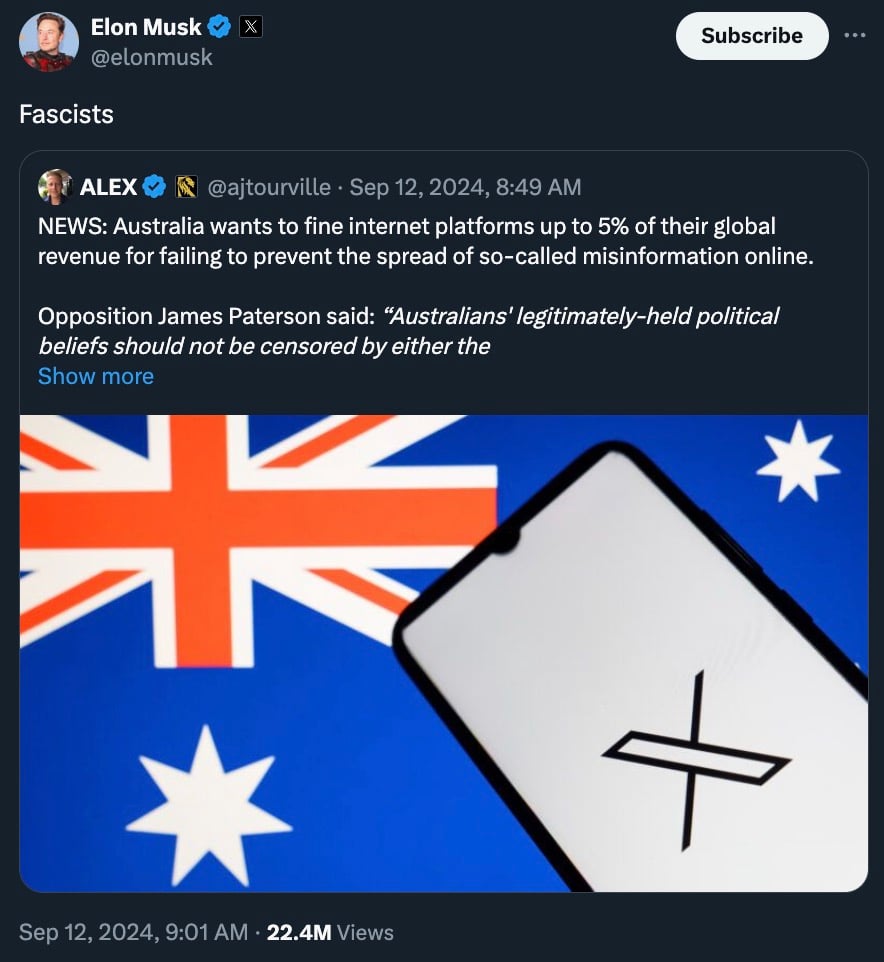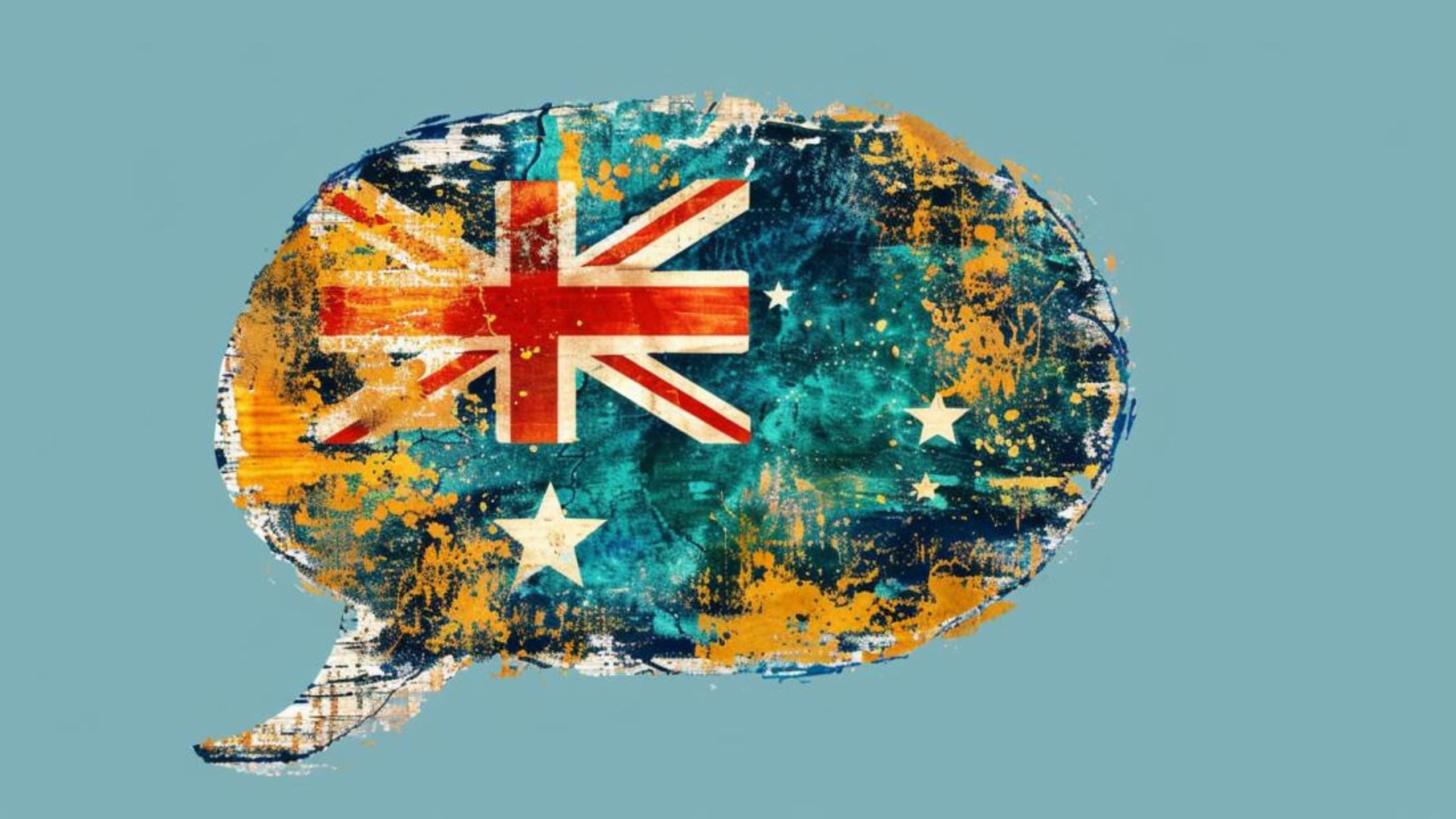New legislative proposals in Australia, that those behind them say are aimed at curbing “disinformation,” are rejected by opponents as the biggest yet assault on free opinion and speech in the country.
The biggest such attack, at least “in peacetime” – this is how Institute of Public Affairs Director of Law and Policy John Storey qualified what he sees in this unprecedented effort – but the Australian authorities have been engaged in their “war on disinformation” for a while now.
We obtained a copy of the bill for you here.
The bill containing the new laws was introduced in parliament earlier in September by Communications Minister Michelle Rowland, who continued to brand what the government decided to consider as misinformation and disinformation “a serious threat” that affects Australia’s safety and well-being.
Peacetime? Judging by this rhetoric, it doesn’t sound like the country’s ruling class is living in any kind of political peacetime. In order to establish their version of the ideal, threat-free society, the laws would fine companies deemed to be enabling disinformation, etc., on their platforms by taking up to five percent of their global revenue.
In order to prevent the proliferation of “disinformation,” companies are expected to introduce (yet more) rules (“codes of contact”) that deal with it via “an approved regulator.” More transparency and accountability is how Rowland chose to interpret the situation, should the proposals become law (the goal is to get this done by the end of 2024).
The opposition is warning that several other provisions (up to seven years of prison time in cases of doxxing, and giving parents the right to sue, if they feel their children are subjected to “serious privacy invasions”) – will in reality produce a chilling effect on political speech as well.
The reason for this angle in criticizing the proposals championed by Rowland is the (usual for this type of effort) wide-ranging nature of the draft legislation. Wide enough, in fact, to apply to election candidates and referendum proposals, a spokesman for the Australian opposition Coalition was warned.
Hand in hand with the hunger for sweeping powers, with disinformation scaremongering at the center, come vague definitions. The spokesman, David Coleman, says that the legal proposal seeks to treat something as misinformation if it can be “reasonably verifiable” (by whom, based on what exact criteria?) as false, misleading, or deceptive information – but also “reasonably likely ” to cause serious harm or contribute to it.
Applied to the election process, this means whatever’s decided to be misinformation about candidates and referendum proposals.
“By stating in black and white that ‘information about electoral candidates or referendum proposals’ can be captured as misinformation, the government is making clear that this legislation will go to the core of our democracy,” Coleman commented.
The spokesman also noted that the bill wants to put tech companies in a position where they decide – while facing massive monetary fines or even prison – what kind of information relating to elections and referendums should be available to Australians.
Of interest, as an insight into the way the Australian government thinks about and treats these issues, is that the current proposal it seeks to fast-track in parliament is actually the “second draft” to change the existing anti-disinformation laws.
The government had to abandon the first over much the same type of criticism. X owner Elon Musk decided to rattle yet another government’s cage for its anti-free speech policies – and pressure put on social platforms – referring to those behind Australia’s proposals as “fascists.”

This hasn’t failed to elicit a response, where Labor Assistant Treasurer Stephen Jones dismissed Musk’s opinion as “crackpot” and decided to play the sovereignty card.
It’s up to the Australian government what it does to Australians, is the gist of the “argument.” And Jones added combating scammers and criminals to Rowland’s list of “serious threats to safety and well-being.”
Institute of Public Affairs’ John Storey, however, sees this dramatic talk about big problems and consequences to be allegedly solved by the bill as “disingenuous.”
The real goal, according to him – (and no doubt bearing in mind the broadness and vagueness of it all, from the scope to the “definitions”) – is no more than an attempt to let government bureaucrats position themselves as arbiters of “official” truth.
Political censorship will be the result, Storey believes, and the government is pushing the bill while (ab)using legitimate worries about Australia’s societal issues, as well as those parents have about their children’s safety on the internet.










